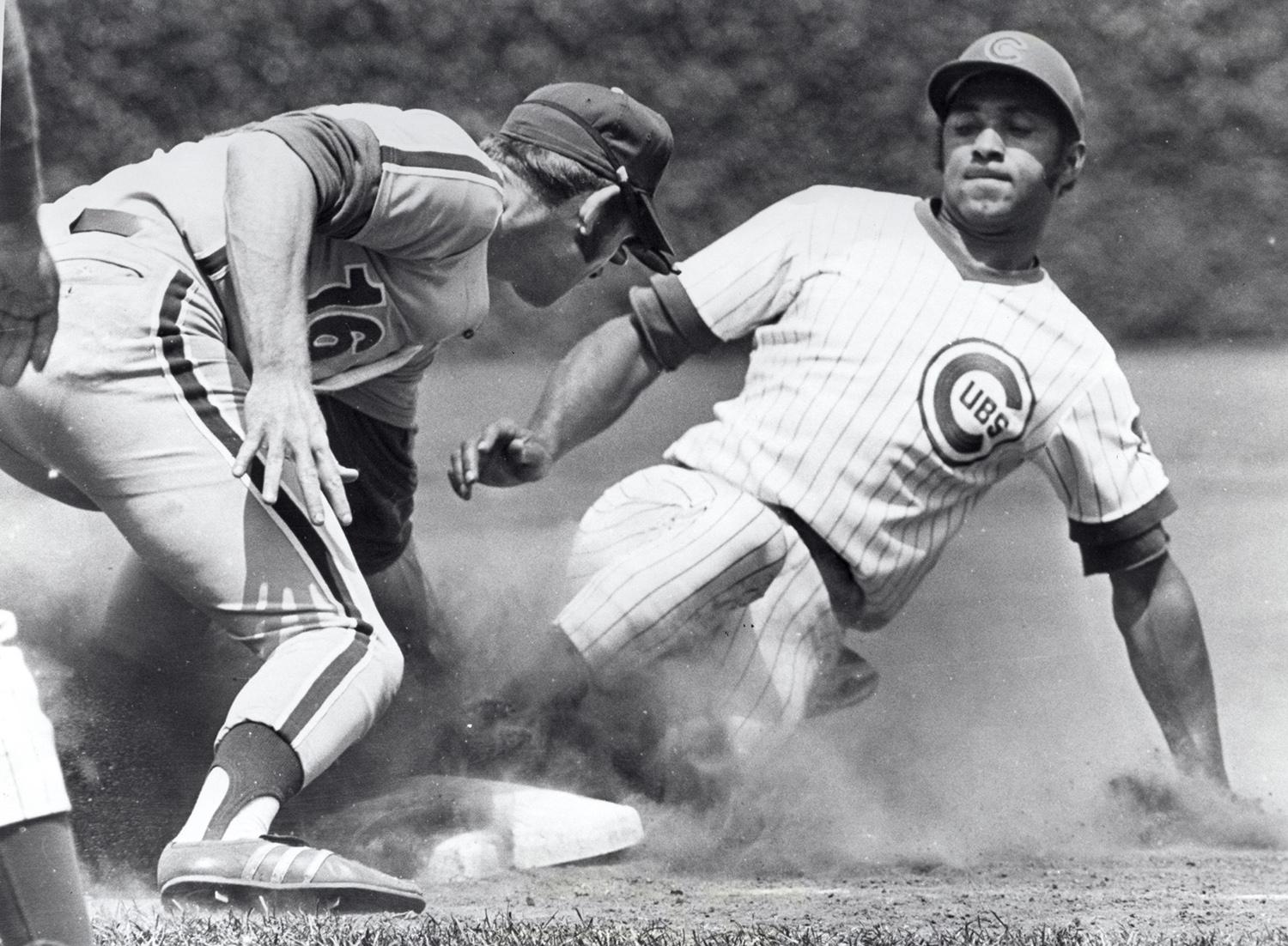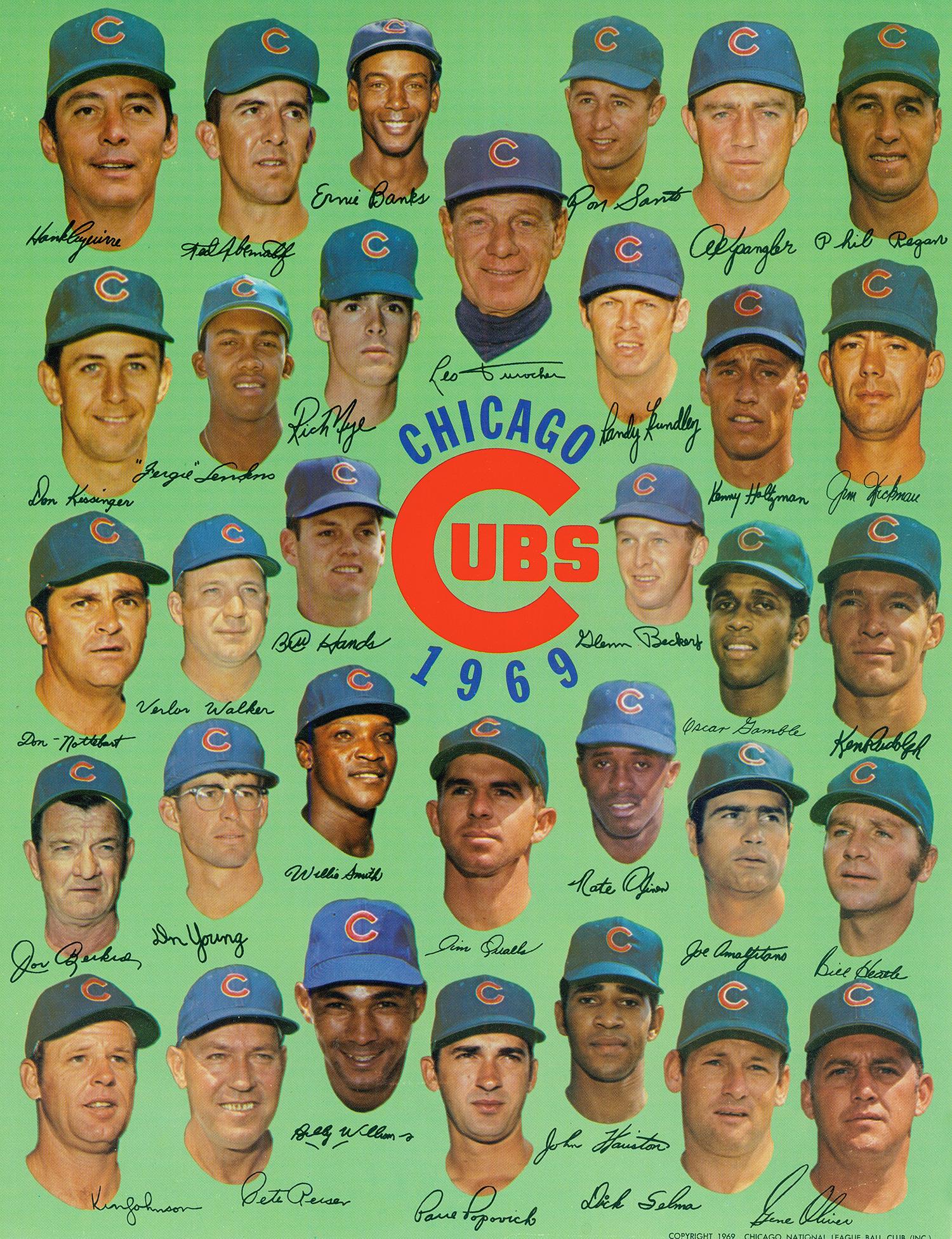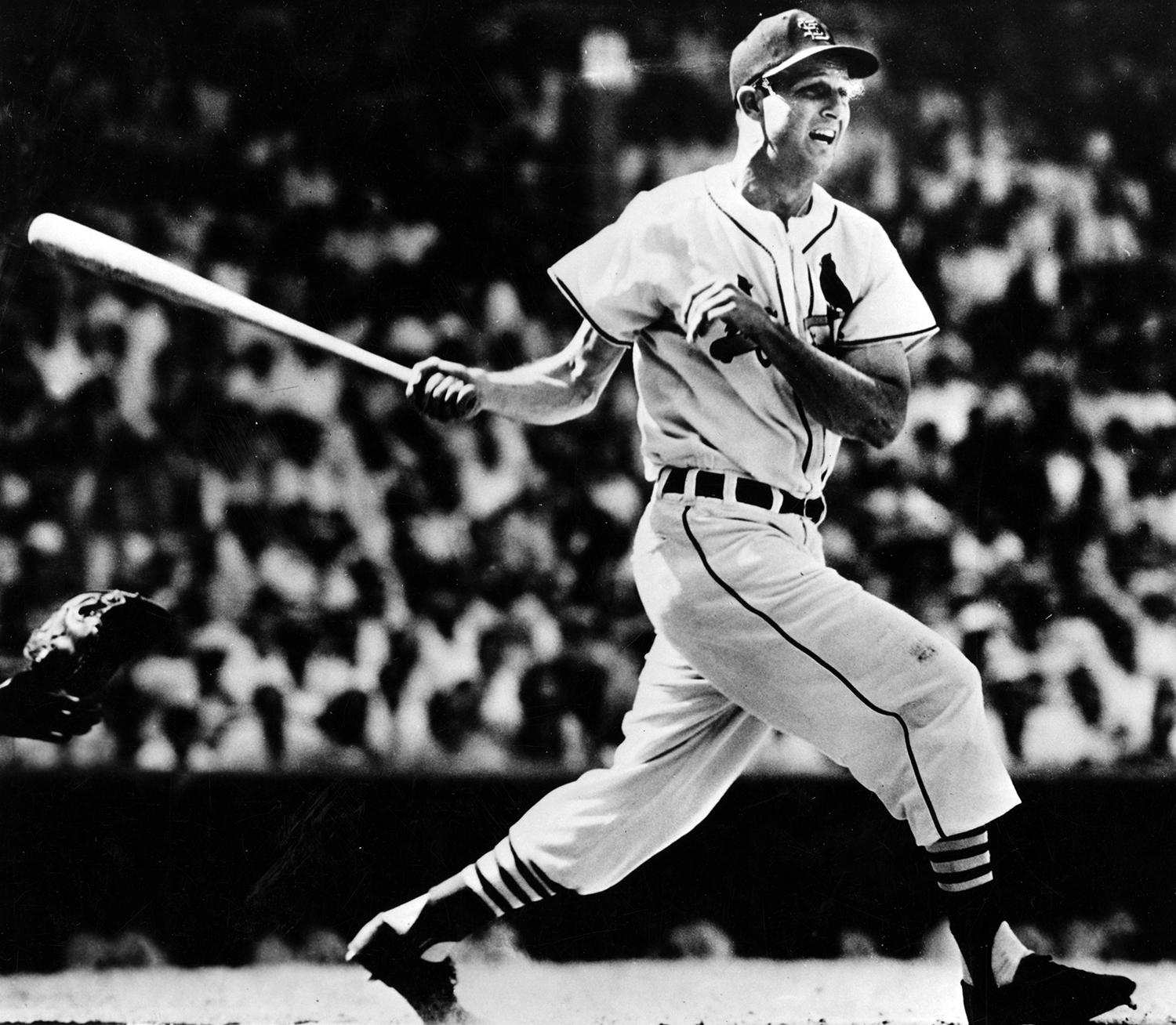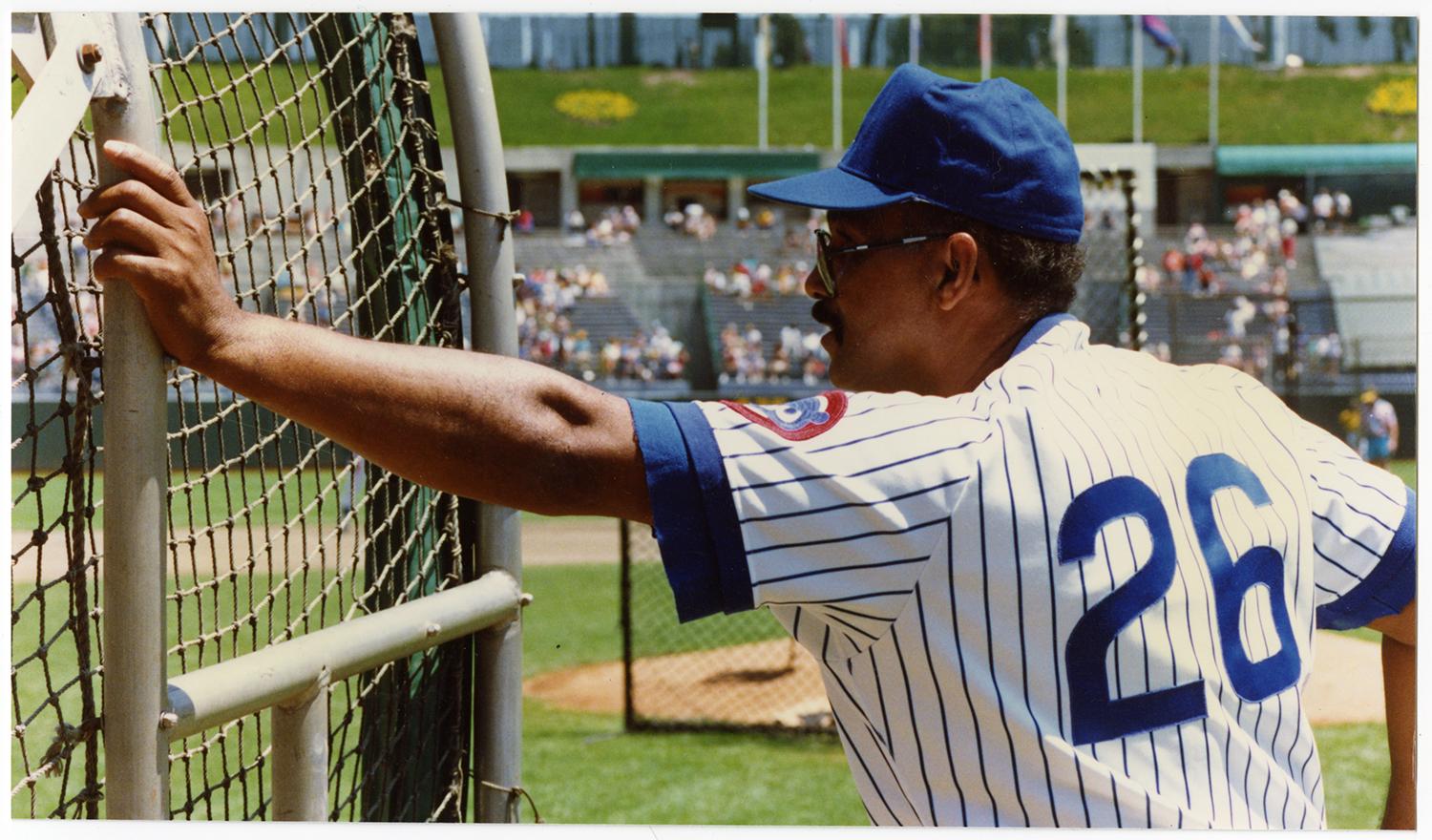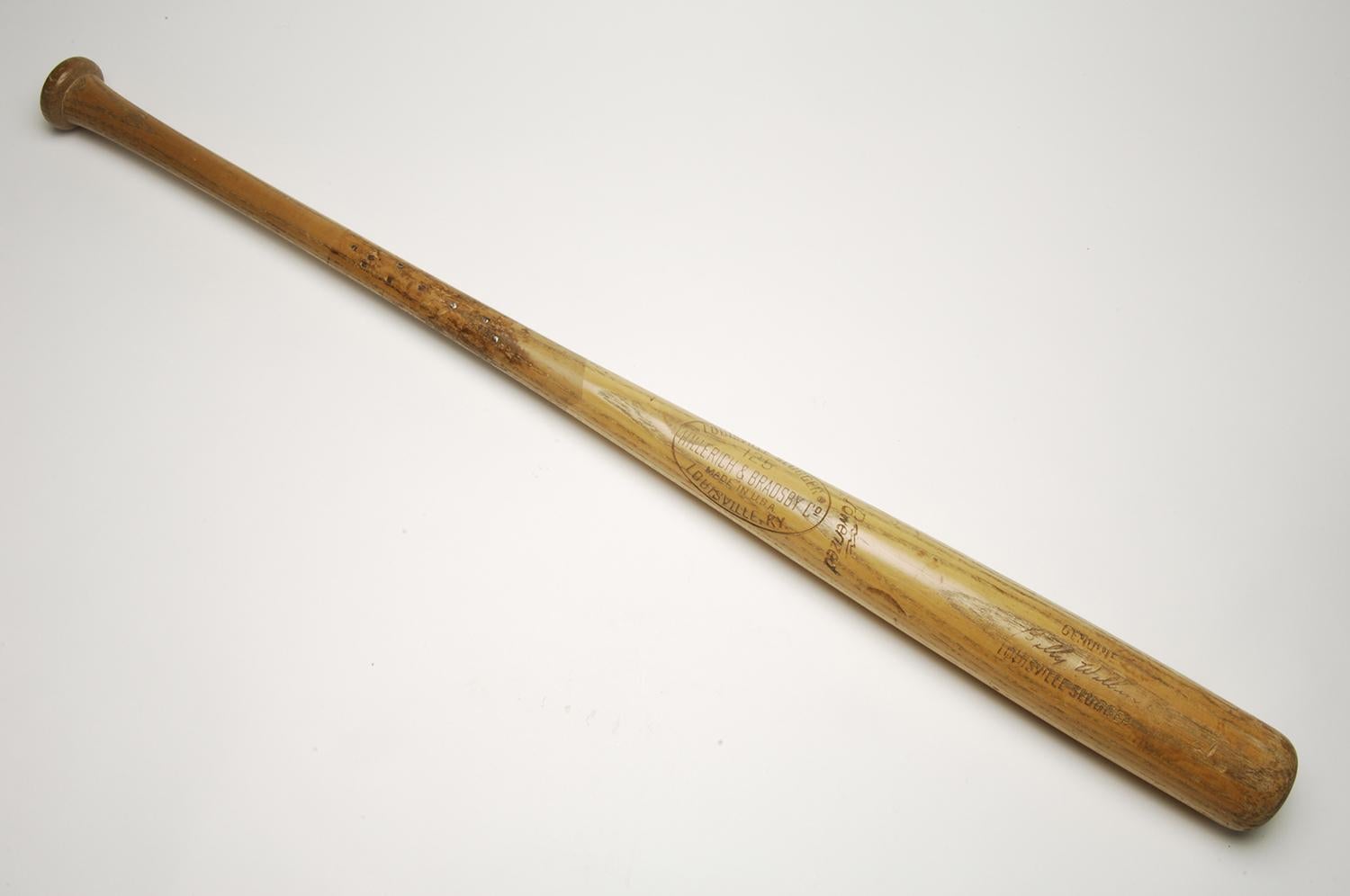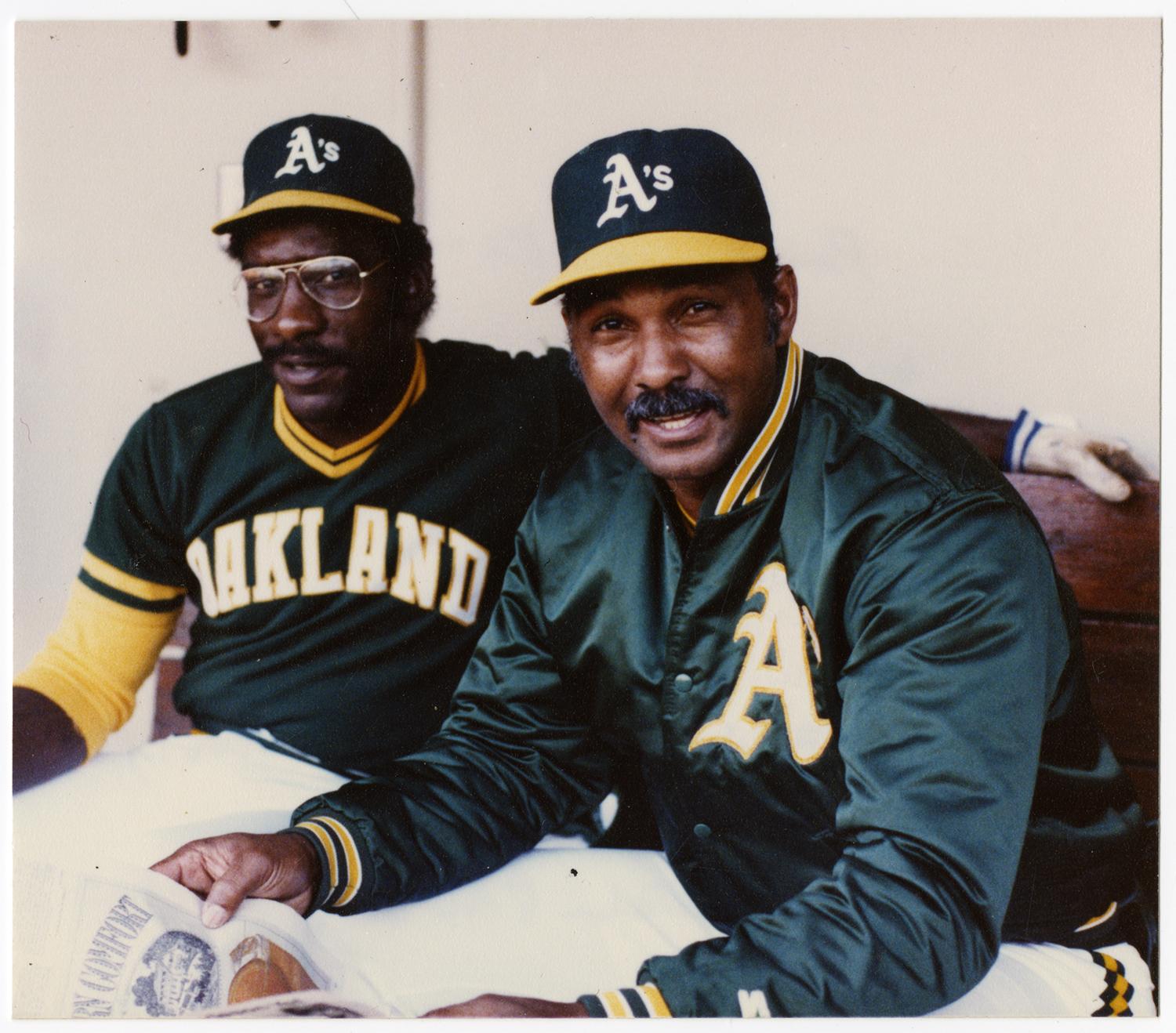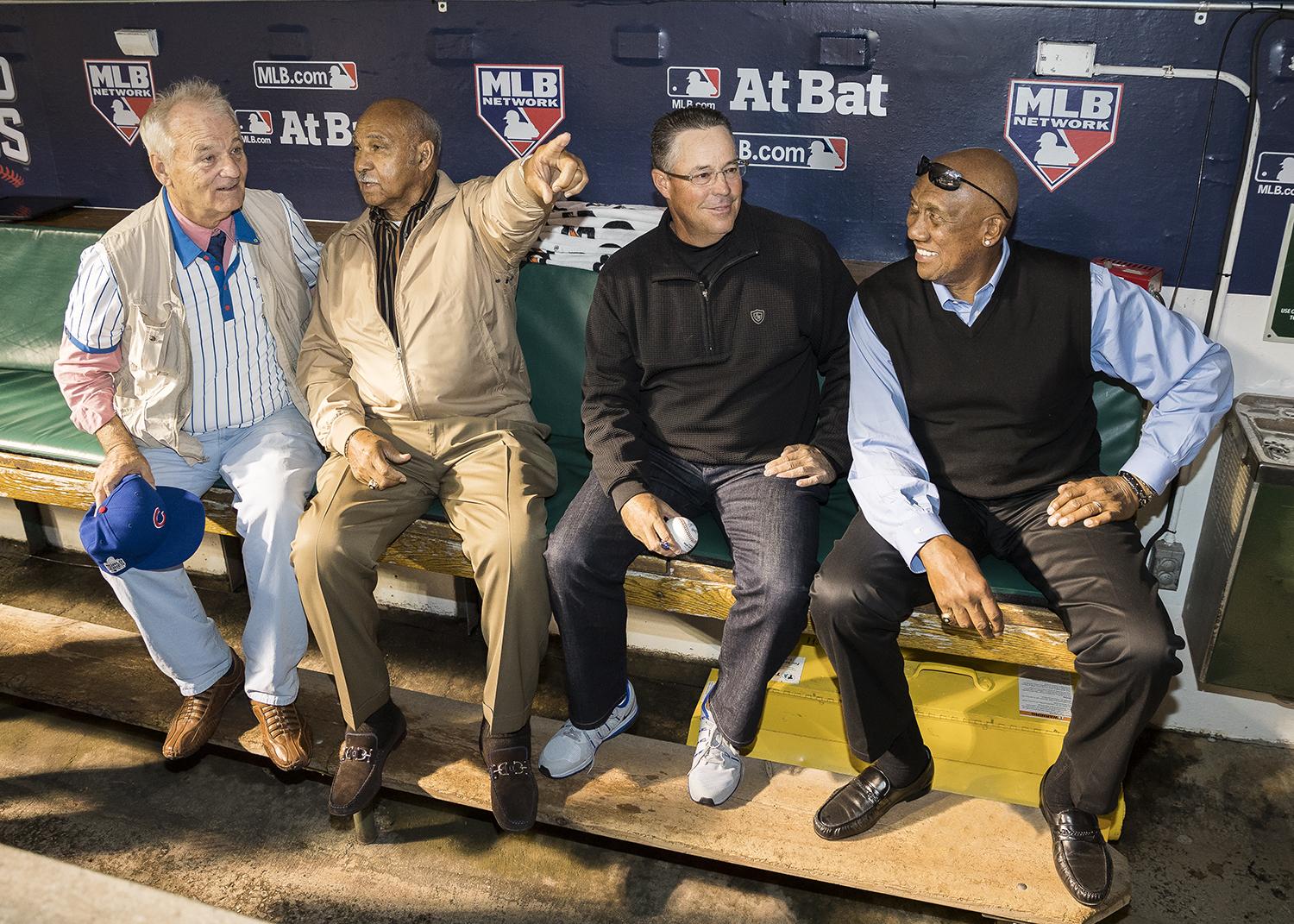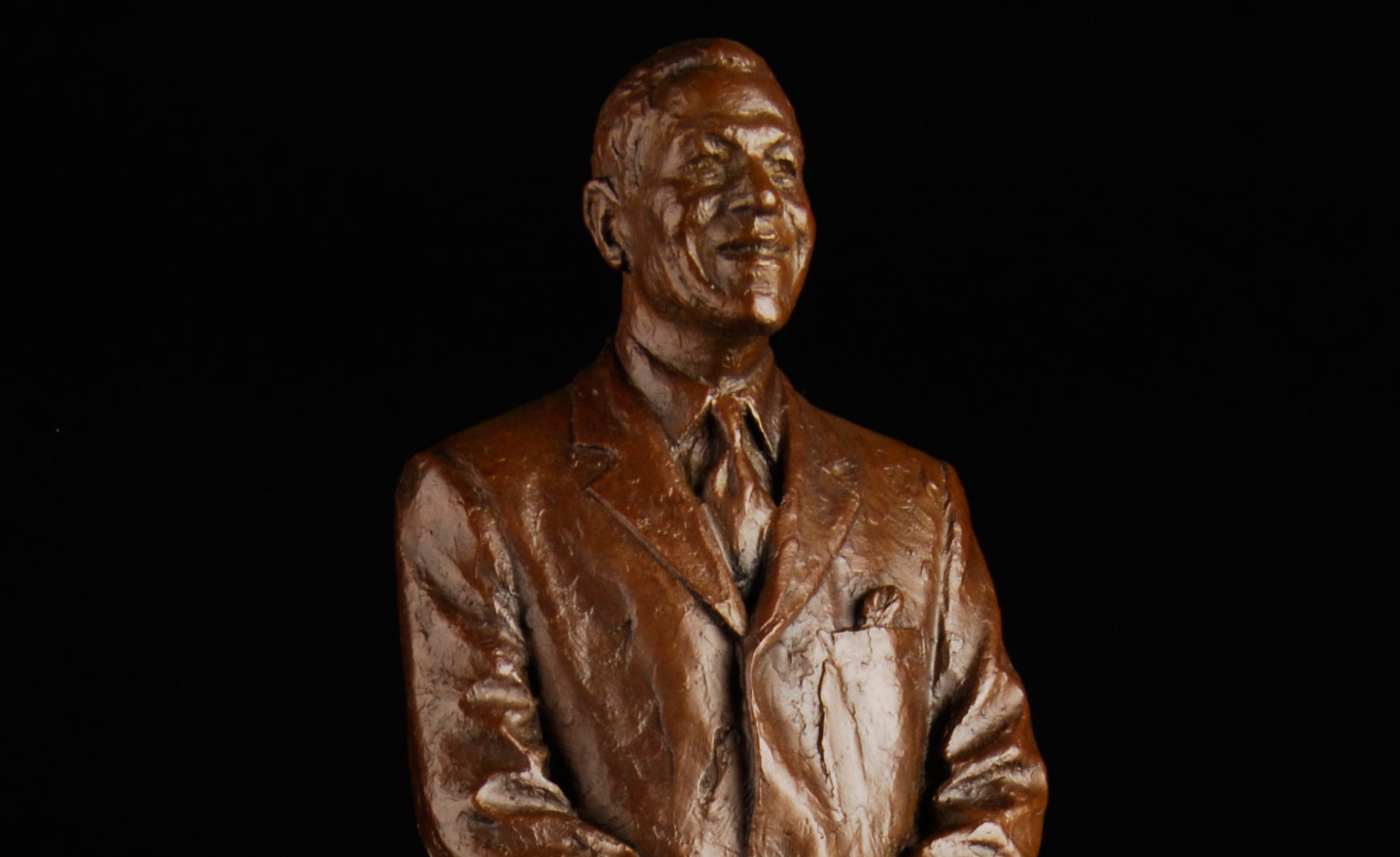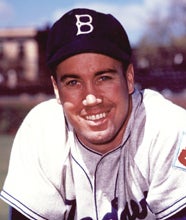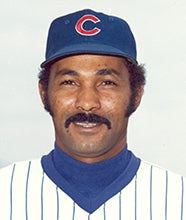"I was really proud of that simply because this was a prediction by Rogers Hornsby. He said, “One day, you’re going to win the batting title,” and once I’d done it, I really thought about him."
- Home
- Our Stories
- Loveable Cub: Billy Williams parlayed a textbook swing and unwavering consistency into a plaque in Cooperstown
Loveable Cub: Billy Williams parlayed a textbook swing and unwavering consistency into a plaque in Cooperstown
Billy Williams won the National League Rookie of the Year in 1961, and from there only got better. For 18 big league seasons – the first 16 with the Cubs – the outfielder with the picture-perfect swing combined power and average like few hitters in the game, despite playing in an era where pitching reigned supreme. When Williams retired, he had amassed six All-Star Game selections, two runner-up finishes in the NL Most Valuable Player voting and the 1972 NL batting title. He led the NL in total bases three times, reached the 30-home run mark on five occasions and played in 1,117 consecutive games from 1963-70, the longest NL streak in history at the time of his retirement. Elected to the Hall of Fame in 1987, the 78-year-old Williams reflected on his career during an interview with the Jon Shestakofsky, the Hall of Fame’s Vice President of Communications and Education.
HOF:
You’re “Sweet Swingin’ Billy Williams from Whistler, Ala.” Tell me, what kind of a town was Whistler to grow up in?
BW:
It was a little small town and of course a lot of people knew each other. When you talk about Whistler, you talk about every small city that had one stop light and a couple of grocery stores. The one thing they did have was Eight Mile Creek, so I like to say that because that was the outlet where I used to go swimming. We would play baseball practically all day during the summer. We’d start out in the morning about nine-o’clock and then we’d take off about 12- or one-o’clock for swimming at Eight Mile Creek and after we’d swim awhile we’d come back and play some more baseball. That was the time I guess when we’d talk about baseball. You’d think about Jackie Robinson and the Brooklyn Dodgers, and anytime we started a baseball game everyone was one of the players of the Dodgers. Even the catcher, you know, I’m Campanella, you know, I’m Jackie Robinson, I’m Duke Snider…When you talk about a small town you’re talking about a town like Whistler, Ala.
Hall of Fame Membership
There is no simpler, and more essential, way to demonstrate your support than to sign on as a Museum Member.
HOF:
I understand you come from a baseball family.
BW:
My father played along with the Satchel Paige (in the Negro Leagues). My older brother, he played, he was a pitcher on the same team that Henry Aaron played with: The Mobile Black Bears. I played baseball during the day and on a Sunday I would go down and watch them play because I was too young to play with them. But I remember Aaron playing second base at the time and my brother was a left-handed pitcher on this team and my other brother was a left-handed hitter, he played baseball he played the outfield. My third brother, he was a player that got signed by the Pittsburgh Pirates. He got signed in 1955 and he went up to Triple-A baseball. I remember he played in Grand Forks, N.D. And I signed in 1956. But even my sister, she used to get out and play baseball. She was a good basketball player too. Everybody in my family was pretty good athletes.
HOF:
Alabama, and especially that Mobile area, was a baseball hotbed at the time. So many Hall of Famers came out of Mobile: You, Hank Aaron, Monte Irvin, Satchel Paige, even Ozzie Smith. How do you explain that?
BW:
Baseball was the thing and a lot of the players, all those Hall of Famers, spent a lot of time playing the game of baseball and that was their outlet. Baseball was a game. Basketball we didn’t play that much. Football, I think we had one guy play in the National Football League. But baseball, we had tons of baseball players.
HOF:
As a teenager, you played an exhibition game alongside big leaguers. How did that come about?
BW:
The Dodgers and Cleveland came to Mobile to play (exhibition games after Spring Training) and they would get players from the area to come out to play. I remember walking in the clubhouse with Major League Baseball players, they looked like they were 10 feet tall looking up at them. (We) just idolized them. I was like 16 years old at the time facing (Dodgers pitcher) Joe Black. I know I hit the ball. I don’t know if I got a base hit or not but I hit the ball to left field. But getting a chance to play against major league players, whether or not you got a hit or not, walking in the clubhouse and seeing these individuals who have played Major League Baseball that you idolize, the guys you’ve read about, it was a thrill for me.
HOF:
What did you use for baseball equipment back in Whistler?
BW:
Baseball-wise we would get a baseball, we would buy a baseball, and we’ll play with that baseball about 3-4 weeks and after we knocked the cover off we’d take tape and tape it up and still use it. And the bats, of course, after you break a bat, you would take tacks, nails to make that bat last a little longer. You kind of treasured that equipment because you knew you weren’t going to get any more.
The National League Rookie of the Year in 1961, Billy Williams was identified by Hall of Famer Rogers Hornsby as a future batting title winner before Williams even got to the big leagues. Williams would prove Hornsby right, winning the 1972 NL batting crown. (National Baseball Hall of Fame and Museum)
Share this image:
HOF:
So how is it you did come to sign with the Cubs? A cigar and bus ticket?
BW:
Tommie Aaron, Henry Aaron’s brother, and I were still playing with the Mobile Black Bears. Irv Griffin, who was a scout, was following us at the time. I always thought he was looking at Tommie Aaron I didn’t think I was that kind of ball player at the time. (Griffin) drove to the one grocery store that we had in Whistler and he asked the one guy, “Where’s the lad Williams live? Billy Williams.” He made mention that I played baseball with the Bears and has two or three more brothers that play the game. And the guy didn’t want to tell him because he thought I was in some kind of trouble. He said (to Williams’ father) my name is Irv Griffin and I’ve been watching your son play baseball for the last three weeks and we think he has the potential to play baseball and we want to talk to you about him signing a baseball contract. In the meantime the other brother was signed already. I said, “Daddy, go ahead and sign it. I’m ready to go play baseball now.” Daddy signed the contract and we got the $1,500 and a cigar, and the next couple days, two days after I finished school, I was on my way to Ponca City, Okla., to play baseball.
HOF:
You dealt with racism as one of the few Black players in minor league baseball, and almost quit baseball in 1959. Is it true that Buck O’Neil convinced you to continue playing?
BW:
(By) 1959, I was at San Antonio, Texas. I’m sitting on the bus, waiting on guys to bring me food, I can’t live in the hotel. I said, “I’m tired of this. I don’t want to play the game no more. I don’t want to play no game.” My roommate was J.C. Hartman. When I got back to the hotel, I said, “J, take me to the train station,” and J said, “I’m not going to take you to the train station.” He said, “Where you going?” I said, “I’m going home. I’m tired. I don’t want to play this game,” and I was beginning to take something away that I loved because I didn’t love the things that were going on. So I convinced him to take me to the train station, (and) I went home. I stayed home for about a week. So Buck came down. My father built our home about 75 feet off the street, way in the back, and I see this car coming up. Buck always drove a (Plymouth) Fury and I see this car coming up and I thought “I’m in trouble now.” So Buck came up and said, “What’s wrong, boy?” I said, “Buck, I don’t want to play this game. I don’t want to play. I’m tired. I don’t want to go through all this stuff.” He said, “Well I just came down to see what was wrong. I just came down to help you out, do anything I can for you.” Buck picked me up the next day and we went down to (my old ballfield) Prichard Park. As we walked in the park, there was a couple players that I played with, that I went to school with, that was in my class and they said, “Where you been?” I said, “I’ve been off to play professional baseball,” and they got all excited and they said I bet that’s the best thing that could happen to a young kid – going off to play baseball and just enjoying the game. And Buck O’Neil was just sitting back and looking at me. He knew what was happening. And then Buck said, “How you feel now?” I said, “I don’t know Buck, you know I might want to go back and play baseball again.” The next 2 or 3 days, I went back to San Antone and three days after that I went to Triple-A, and later on I was in the big leagues. It could have worked out a different way. It was just lucky that Buck O’Neil came down. Buck knew exactly what he was doing.
HOF:
Ron Santo called your swing “one of the prettiest” and Willie Stargell called it “poetry in motion.” Where did that swing come from?
BW:
When I was growing up…we would go down to different grocery stores and we’d gather up these (bottle) tops and we would play a game with tops with a little small stick. You’d have a pitcher on the mound, and they’d flip the top, and the top could do everything. If you make good contact with that, you could follow the ball pretty good. I was blessed, of course, with the quickness of the bat, and by having this it allowed me to wait a little longer to see the ball a little longer. The swing was there because I had the quickness. I was blessed with the quickness that I could wait on the baseball. I hit line drives to left field, I hit line drives to center field, I hit line drives to right field. I had the confidence that I could wait, see the ball a little longer than the average hitter, and I knew I could make good contact. And that’s what brought the swing about. I was gifted with the quickness. I also looked at a lot of film and I knew (where) every part of my body (was) when I made good contact on a baseball. When I have a good swing, I set my foot was right here and my hands was right here.
HOF:
I understand you worked with Rogers Hornsby in the minor leagues. What did you learn from him?
BW:
I think one of the most important things that I got from him is learning the strike zone. I remember we had a batting cage and he would go down with a chair and he would say, “Know where the ball is.” The strike zone at that time (was) the armpit to your knees – over home plate, which is 17 inches wide, and that’s what I learned at an early age. That’s what happened and I think that Rogers talked about the strike zone, making the ball be in the strike zone, and all through my baseball career I learned to be a good strike hitter. I learned the strike zone.
HOF:
What was it like to develop from the minor leagues to the major leagues with Ron Santo?
When Billy Williams almost quit baseball in 1959, Buck O'Neil (pictured above as a member of the Kansas City Monarchs) convinced Williams to keep playing. (National Baseball Hall of Fame Museum / Larry Hogan)
Share this image:
BW:
(Rogers Hornsby) had a couple workouts where he stay up three or four days (when Ron and I were at Double-A). On the final day, he set everybody up in the stands and he said “Some of you guys may have to go home to get a job.” We were sitting up in the stands and we didn’t know what Rogers was going to say, so we’re sitting up in the stands and Rogers goes up to this one individual and said, “Well son, if I were you, I’d go home and get me a job, because I don’t think you can play baseball.” So he goes to another guy, and Santo says, “What the hell is he going to say to us?” So he gets to us and he says, “Santo, you’re going to be a good Major League Baseball player. You’re going to be pretty good. You can play and hit the baseball. And Williams, you could become a Major Leaguer because you’ve got a good swing, you put the bat on the ball, and you might have a chance.” So he goes back to Chicago and he and (Cubs General Manager) John Holland have a meeting, and he tells John Holland: “John, I’ve been to all your teams in the minor leagues and you’ve got two guys that are playing in Double-A baseball, one playing the outfield and one playing third base…” He said: “You’ve got two guys on that San Antone ball club that are going to make good baseball players for the Chicago Cubs.” And I guess in about two years, we were in the big leagues. Santo was the third baseman and I played left field and we were teammates for a long time. We played more games than any two Major League players in the game of baseball. It was a great thrill playing with (Santo). We had a lot of fun as a minor leaguer and in the Major Leagues. I remember him coming down right after he got signed and he just bought himself an Impala – Chevrolet Impala – so he was a big stuff when he signed. We became good friends and all through the Major Leagues we’d get together and just have a great time.
HOF:
You won the Rookie of the Year Award in 1961 on a fantastic second half of the season. How did you adjust to the big leagues that year?
BW:
Guys in the Major Leagues know how to pitch. When I first came up in ’61, I remember trying to get a hit, fighting myself, trying to do things and I wind up not doing anything. And I’m saying, “Why? In Double-A I swung the bat good and Triple-A I swung the bat good. I know the strike zone.” I’m doing everything I did in Double-A and everything I did in Triple-A but things just weren’t working out. John Holland had told the organization, “We’re going to bring in Williams and we’re going to put him in left field and we’re going to just let him play.” And I guess, because he made that statement, I went out there and tried to do a little bit more for him. Bob Will took over being the left fielder and I’d sit on the bench. All of a sudden the bell came on and I started swinging the bat real well, driving the ball, doing everything I’d done in Double-A and Triple-A, and I wind up being the Rookie of the Year that year. After getting off to a bad start, getting back in the line-up and playing sound baseball, I wasn’t a Grade A left fielder, I made myself a good outfielder. But things just started to take off at that time. And I wind up having a good year to win Rookie of the Year.
HOF:
You and Ron Santo teamed up with the legendary Ernie Banks for a pretty potent 1-2-3 punch. What was it like to be on a team with Mr. Cub?
BW:
It wasn’t intimidating, it was just exciting. To be on a baseball team with Ernie, a guy like that. And of course, Ron and I came after Ernie had played six or seven years. When I first came up I said, “Well, I hit 25 home runs simply because Ernie was behind me.” He was hitting 35-40 home runs every year, and I (knew) the pitcher’s not going to walk me. They’re going to give me a good ball to hit, and I was just feasting off that. Anytime you play with a guy like that, it’s exciting. It’s the same as when you go play against the Giants. Let’s say you play against the Giants and you’re on the same field as Willie Mays, and you know he is one of the best ball players in the Major Leagues; when you go to the Dodgers and play against Snider and those guys, you want to do a lot to say that I’m pretty close to you. Not equal to you, but I’m a Major League player too. You just get a thrill of playing out there with those guys. It makes you do a little extra.
HOF:
You were teammates with another Hall of Famer, Fergie Jenkins, for eight years. Tell me about your relationship with Fergie.
BW:
Fergie came over as a relief pitcher 1966. (Cubs manager) Leo (Durocher) saw Fergie pitching as a relief pitcher and he told Fergie, “You’re going to be my starter,” and the next year he became a starter and of course the rest is history. Before Fergie came here, Ernie was a golfer, and at that time I wasn’t playing golf. If I wanted to do something extra I would go fishing, and when Fergie came over I knew that Fergie was a fisherman and a hunter, and this is one of the reasons why we hit it off so good. And of course Fergie had three daughters and I had four daughters, so that was another thing we had in common. We used to get together in Chicago – we had a guy that trained our dogs for us – we would go hunting together and just enjoy life. We did a lot of fishing. I would go to Canada and go fishing up there and he’d come down south go deer hunting. On the road we’d have dinner together. It just made the season go by faster because we were always doing something, keeping busy, going fishing, enjoying life.
HOF:
Including your manager, Leo Durocher, your Cubs teams featured five Hall of Famers – an incredible team.
BW:
It really was. It was a time that we put four Hall of Famers on a baseball team, and of course we had a (Hall of Fame) manager. We didn’t do it for the Cubs – we didn’t win, although we came close in 1969. All these individuals had good years. We just didn’t have a mix of other players. I remember one year, if we’d had a center fielder we probably would have won the whole thing. But we did win 90-some ball games that year, and still I think if they had the (playoff) format now, we could have won.
HOF:
When you look back at the incredible 1969 season, what do you remember about the team and being in Chicago?
BW:
It was like we were rock stars. Every time we’d go on the road, come back, it was a lot of people at the airport waiting to see us, because I guess the fans grew with us. We were together for so long, about six or seven years. Leo knew about players and we put a good team together. We put a good team together that year, ’69, and of course after being there for six years, everybody knew who we were and when we went on the road, when you look in the stands you would have probably more Cubs fans than the other team would have. We would walk down to the dugout and there might be five or six thousand people waiting on the side. We’d sign autographs for them. A lot of people knew who we were in Chicago, and it was just a great thing. The one thing you’re really sorry about was you didn’t bring a pennant to the Cub fans. We played great three quarters of the season (in 1969), then we had to go up (against) the great pitchers of the Mets. I often say we didn’t lose the pennant, the Mets won it. They had the great pitchers. And at that time, you knew that if you got good pitching at the end you’re going to win.
HOF:
You came close to winning a couple of MVP awards in 1970 and 1972. Were you still learning and growing as a hitter?
BW:
When you get to that point, you know the pitches. You learn the pitches and you know what you have to do to play the game of baseball. Distraction, you let it go by the wayside, you just go to the ballpark. You’re more comfortable out at the ballpark. A lot of things happen, but you’re most comfortable at the ball park and I think when you get to that age of 32 to 33 you can kind of let a lot of stuff go, and you just concentrate on the game.
HOF:
Of course, you’re known for that incredible streak of 1,117 consecutive games played to set a National League record. What do you remember about those seven years from September 1963 to September 1970 without an off day?
BW:
If we go back to ’61 when I first started playing in the Major Leagues, of course I’d sit on the bench and I wasn’t playing. I said at that time if I get a chance to be in the lineup, I’m going to play until they tear this uniform off me. You don’t feel that you are a Major League Baseball player until you play two or three years in the big leagues. ’61 of course was the rookie year. ’62 was a pretty decent year. ’63 was a pretty decent year. I don’t know how many games I had at that time, and then you start looking at numbers. You start looking at numbers and you say, “Well, I can play tomorrow and I can play the next day,” and then you get to games where you could break a record. I got to Stan Musial’s record, I got to that and I said, well I could go a little bit farther, and you wind up playing 1,117 games. But the phases of that is when you go out to play because you want to be in the lineup… (then) you play because you’re afraid of somebody taking your job, and (then) you become such a team player at the time. And it’s selfish kind of thing, but you don’t think the baseball team could win without you being in the lineup, and that’s the phase you go through at the end. You want to play the game. You want to be there to help your team win a ball game.
HOF:
The Cubs planned to honor you between games of a doubleheader the day you broke Stan Musial’s record. What do you remember about that day?
BW:
This happened to be in 1969. Everything was a great year that year. We were playing real good and we got probably mid-way through the season to June 29 and the Cubs honored me by setting aside a day for me at the ballpark. I woke up that morning, it looked like rain. I didn’t think we were going to play but when I got to the ball park there were about 10,000 people waiting, because they wanted to be there for that day. Coming up to that game, playing a game in Cincinnati, I think, and I guess the second time up at the plate I swung at a baseball and it seemed to me that was the best ball I hit in two weeks. But I hit it right off my shin, my instep – and my next at-bat, which was the seventh inning, I hit the ball out of the ball park, and I actually almost walked around the bases. And when I got back to the dugout I said, “Leo, you got to get me out of here.” So coming up to that day – I was being honored and was going to break Musial’s record for consecutive games played – I didn’t think I was going to be out on the field, but our trainer, Al Sherman…we went out to the ball park and I was whirlpool, ice, whirlpool, ice, and I got a chance to play in that game on June the 29th. We were playing the Cardinals, who were in first place, and Bob Gibson was pitching the first game and maybe got a base hit that helped win, and in the second game I got the single, the double, the triple, and at the end I said, “Well, I could the cycle today if I hit a home run.” The only time I tried to hit a home run – that day – because I wanted to make it an exceptional day. It was Billy Williams Day. I wind up striking out, but the Chicago fans knew what I was trying to do at the time, and the forty-some-thousand people stood up and gave me a standing ovation. The only time a guy got a standing ovation for striking out! The most important thing, though, you look in the paper the next day – we were in first place. We overtook the Cardinals. I went home that evening. I remember I was sitting in a chair and about three or four minutes later I was asleep, because the emotion of that game and what was happening. It was a beautiful day. There was a lot of people in Chicago that witnessed that and that’s a great thrill. People walk up to me and say, “I was there in 1969,” although there were more than 40,000 people telling me that, so someone’s lying! But it was great.
HOF:
What do you remember about July 11, 1972, when you had one of the best days in baseball history, going 8-for-8 across a doubleheader?
BW:
That was against Houston. We were playing in Chicago. It was one of those days where everything was perfect. You saw the ball good. Your timing was great. You had your hands in the right position. Your eyes were focused on the pitcher, and we have a thing – basketball players have it, all your good athletes have had it: Tunnel vision. It seemed like when the pitcher threw that ball, the ball just rolled up there and everything was perfect. Every ball I hit, I had line drives to left field, line drives to center field. There was no question of base hit. Everything was a solid base hit.
HOF:
The bat you used in that doubleheader is in the Hall of Fame’s collection. What’s the story with that bat?
BW:
Probably got some little nails in it! I saw that bat when I went up to Cooperstown. It had a little crack on it and I had some new nails in the bat and after I got those hits, the Hall of Fame got it.
HOF:
You went on to win the batting title that year. Had that been a goal of yours?
BW:
I was really proud of that simply because this was a prediction by Rogers Hornsby. He said, “One day, you’re going to win the batting title,” and once I’d done it, I really thought about him. I got close a few years but this is the only time I won it. (Hornsby) used to sit right behind home plate. I’d swing at that ball and miss and I’d look around and all he said was keep your eye on the ball. That was his big thing. I’m proud of winning the batting title. It was consistency.
HOF:
You played every day, and at the end of the season your results were remarkably consistent year to year. Was consistency the overriding philosophy of your career?
BW:
I think that’s the most important thing. That’s the thing I’m really proud of. The consistency of each year. I would go to plate 600 times every year, and in those 600 times I would strike out 1 out of 10 times, and (I’m going to hit) right around right over .300. I remember when I got established, Fergie Jenkins and I, we left Spring Training going to Chicago, and we put our number projection – what we going to do this particular year – and we would take and post it on the top of our locker, and most of the time we came close to those numbers. Fergie did and I did, and that’s the thing we were the most proud of when we played was consistency. I wanted to hit 30 home runs, I wanted to drive in 100 runs. Most important, I wanted to score a 100 runs. Everybody talked about the other (numbers) but scoring 100 runs, that made you a good ball player.
HOF:
Did you have a routine during the season to keep you ready, day in and day out?
BW:
I would say yes. There were times that I could hit two home runs and I’d go home, and the only time my wife would find out about it is if they had it on the 10 o’clock news, and she’d see that and say, “You hit two home runs today!” I wasn’t too high and I wasn’t too low. Consistency is staying right in the middle because baseball is a game of failure. You could be good one day and not good the next day.
HOF:
Speaking of routines, tell me about the ritual you used to repeat with gum at the plate.
BW:
I started that after three or four years in the big leagues. My habit was if I’m playing in the outfield and I’m coming up to the plate the next inning, I get a half a stick of gum – not a whole stick, a half a stick of gum – and I always went around the umpire – I never went between the umpire and home plate, I always went around the umpire – and after chewing that gum for a while and making it into a ball, I spit that gum out and swung and it seems like every time I hit it in the opposing dugout. It was a psychological thing. If I don’t do it, I can’t hit that baseball. I started doing it and kept on doing it and it became a trademark.
After playing for the Oakland Athletics for the final two years of his major league career, Billy Williams (right) returned to the team as a coach from 1983-1985. He's pictured above with A's designated hitter Mitchell Page. (Doug McWilliams / National Baseball Hall of Fame and Museum)
HOF:
What do you remember about being traded to the A’s?
BW:
It was expected. At that time the Cubs were going through another rebuild and I told him I didn’t want to go through it again. At that time I was ready to go somewhere I could play in a World Series and play in a playoff game.
HOF:
Last year, the Chicago Cubs won their first World Series since 1908. How did it feel to be a part of the organization during that historic season?
BW:
You look at it as you were one of the building blocks. You had been there a long time and you try so many years to get this club over the hump, and I often told the guys whoever’s with this ball club, if they win in a World Series, that’s the ticket to paradise. When (Cubs first baseman Anthony) Rizzo caught that ball (to win the World Series), you thought about Ernie and Ron Santo, because we were teammates for so many years, and wishing that they could be here to see this excitement that we’re going through at this time. I was happy for the fans because when I walk around in Chicago the people asked me, “Are the Cubs going to win a World Series in my lifetime?” and I won’t have to answer that question no more. Guys around the league who I played against, they were real happy for the Cubs because they were happy for me. They’d have been happy for Ernie but he’s not here. A lot of guys called me to say how happy and thrilled they were that you got a chance to witness a World Series in Chicago. And I was so proud of the guys that day because they played well.
Actor Bill Murray (far left) and Hall of Famers (l to r) Billy Williams, Greg Maddux and Fergie Jenkins talk in the dugout before the start of Game 4 of the 2016 World Series between the Cleveland Indians and the Chicago Cubs at Wrigley Field on Oct. 29, 2016 in Chicago. (Jean Fruth / National Baseball Hall of Fame and Museum)
I remember Opening Day when Ryne Sandberg, Fergie Jenkins and myself, we sang “Take Me Out to the Ball Game,” and I had the mic and I said, “Are you fans ready for a fun summer?” … I kind of felt it and in the playoffs. The first game when we played the Dodgers (in the NLCS), I threw a first pitch out. I kept the ball and I kept the jersey. I felt something, and when we got in the World Series, the third game of the World Series I threw the ball out. I had the jersey on and I saved those things. I got all the guys to sign baseballs for me because it has been 108 years since we’ve done this. It was exciting. Not only did we excite the fans in Chicago, but so many people around the world were fans of the Chicago Cubs. Maybe it was because we was the underdog. I’m proud of them and it’s like nothing else. You’re a World Series Champion.
Jon Shestakofsky is the vice president of communications and education for the National Baseball Hall of Fame and Museum
Related Stories
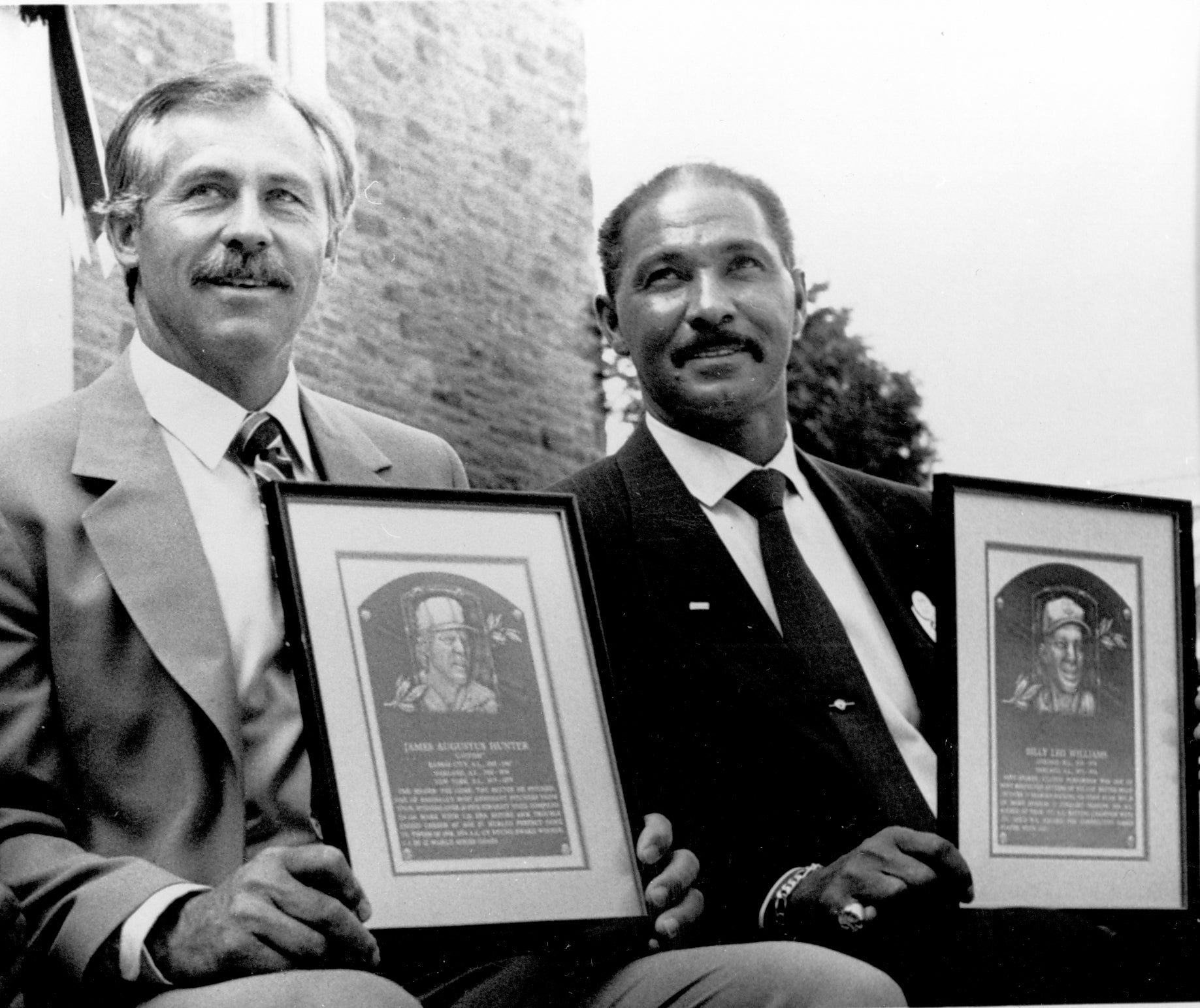
Catfish Hunter and Billy Williams elected to the Hall of Fame
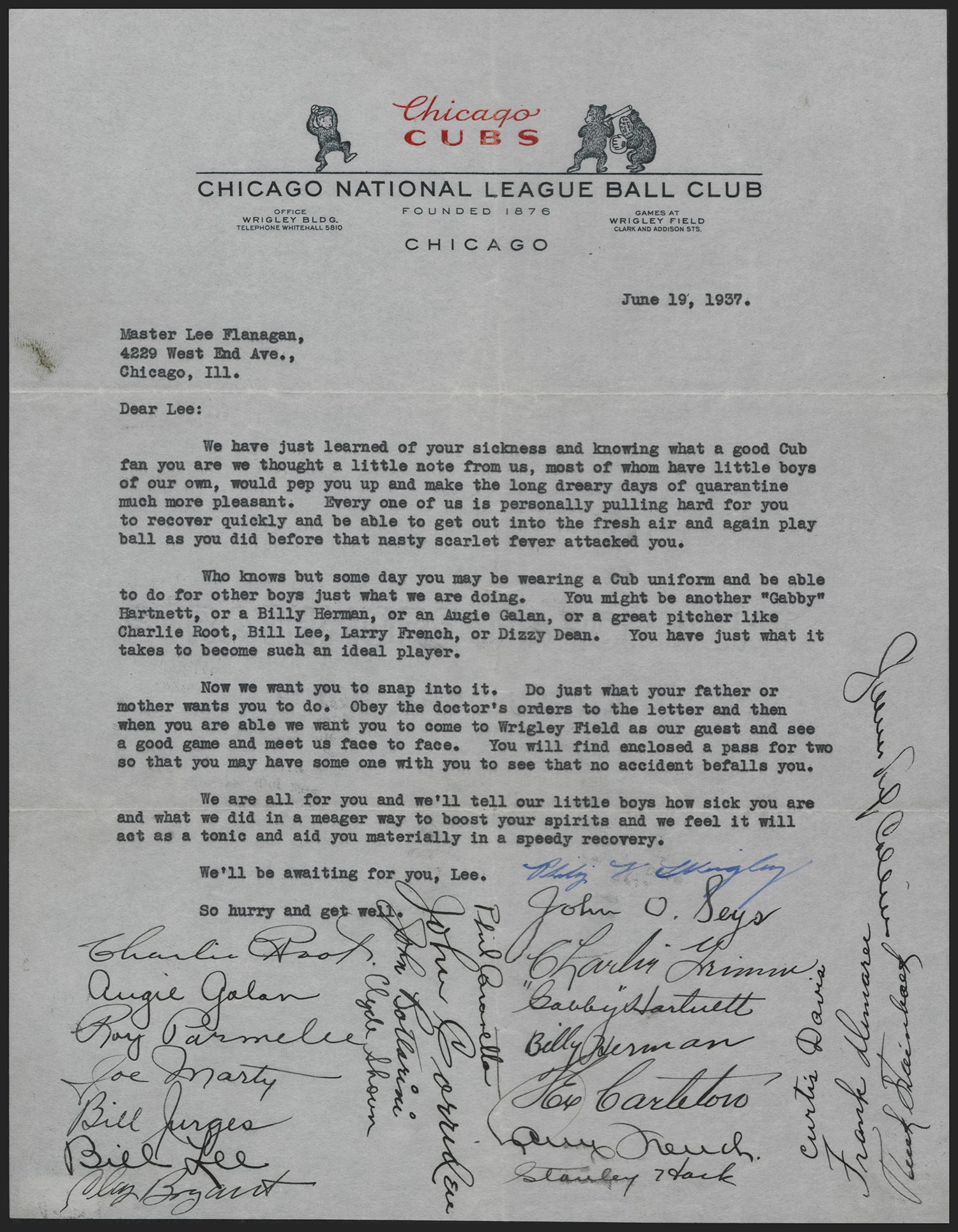
Heartfelt letter from Cubs players to young fan demonstrates power of national pastime
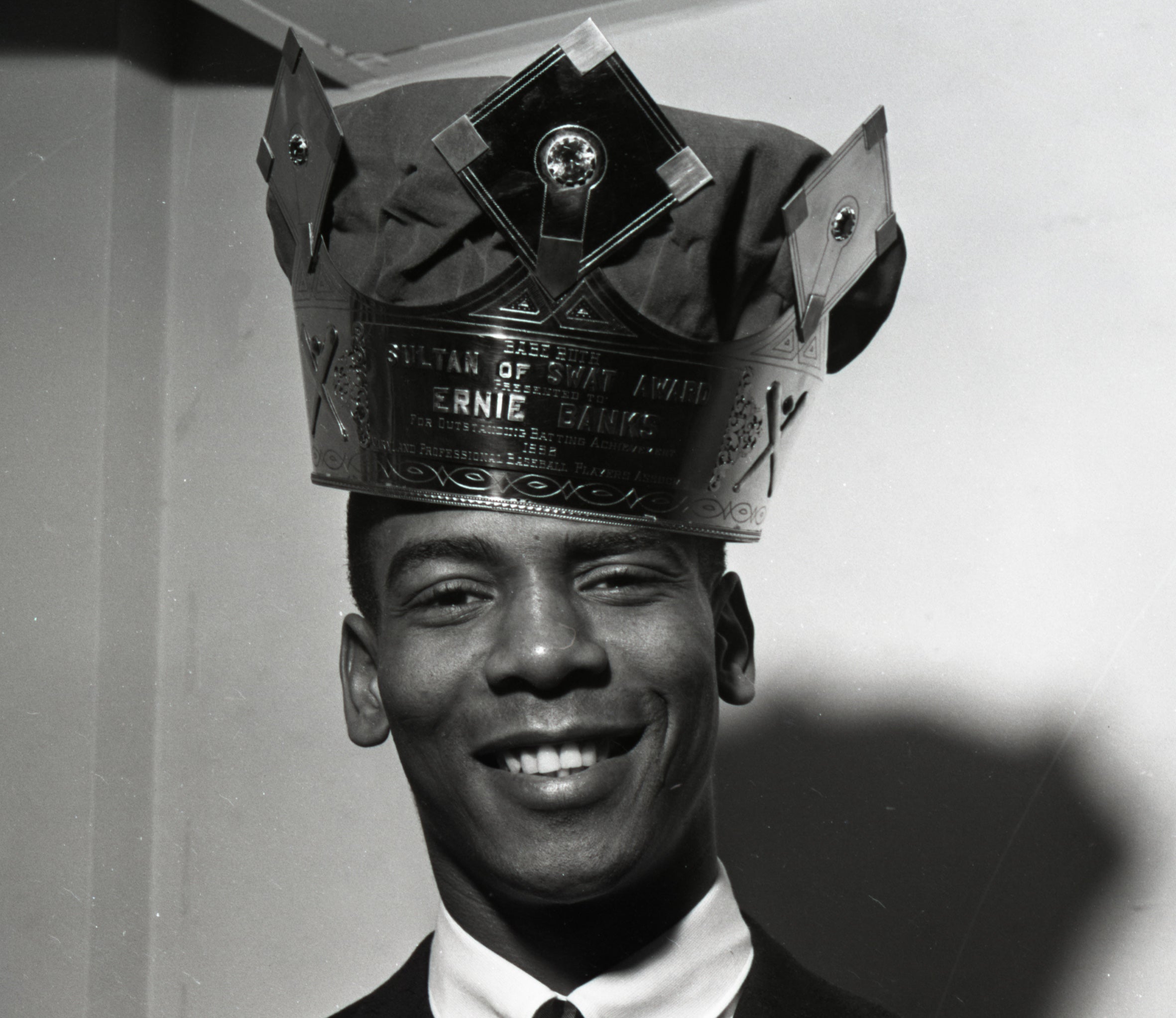
Ernie Banks wins second straight NL MVP award

Catfish Hunter and Billy Williams elected to the Hall of Fame

Heartfelt letter from Cubs players to young fan demonstrates power of national pastime






